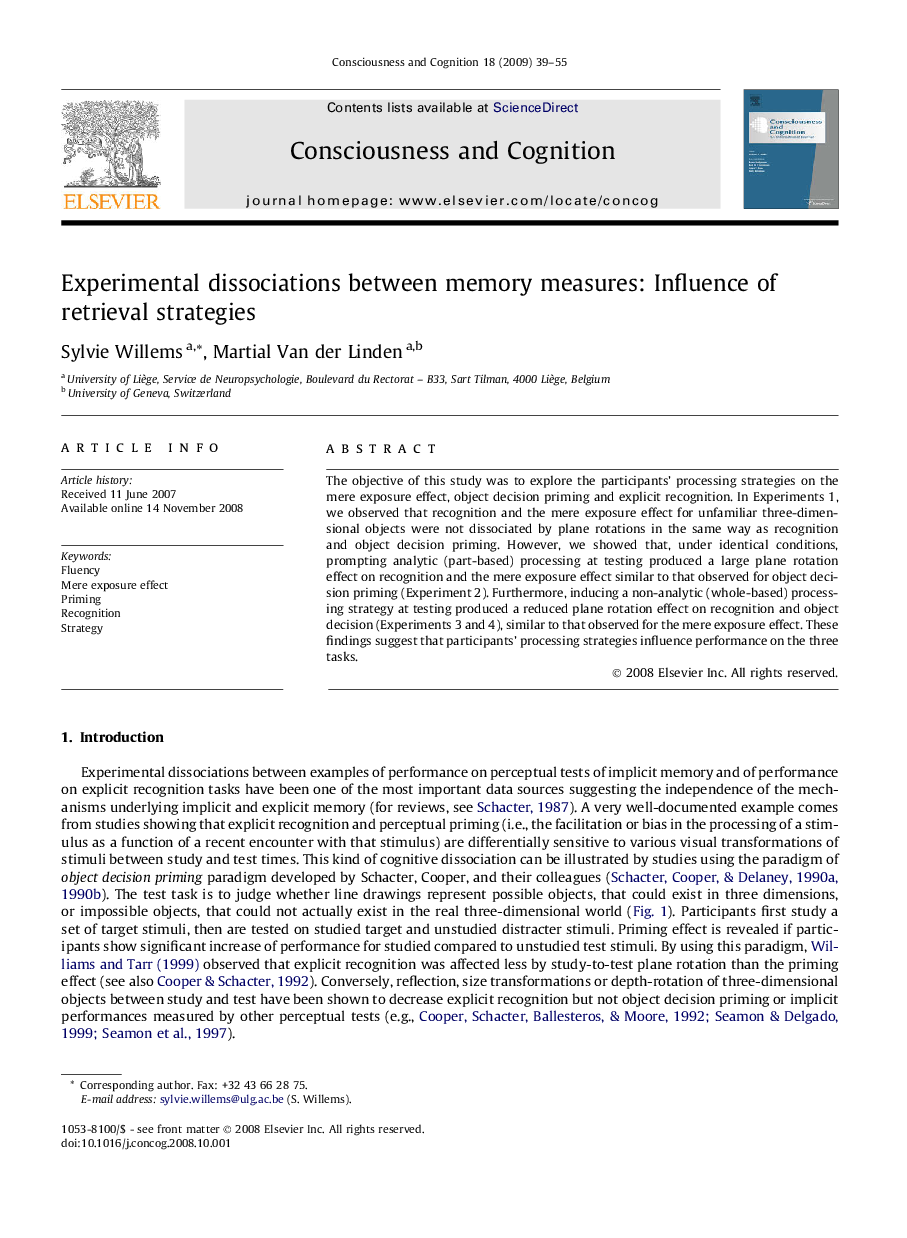| Article ID | Journal | Published Year | Pages | File Type |
|---|---|---|---|---|
| 927851 | Consciousness and Cognition | 2009 | 17 Pages |
The objective of this study was to explore the participants’ processing strategies on the mere exposure effect, object decision priming and explicit recognition. In Experiments 1, we observed that recognition and the mere exposure effect for unfamiliar three-dimensional objects were not dissociated by plane rotations in the same way as recognition and object decision priming. However, we showed that, under identical conditions, prompting analytic (part-based) processing at testing produced a large plane rotation effect on recognition and the mere exposure effect similar to that observed for object decision priming (Experiment 2). Furthermore, inducing a non-analytic (whole-based) processing strategy at testing produced a reduced plane rotation effect on recognition and object decision (Experiments 3 and 4), similar to that observed for the mere exposure effect. These findings suggest that participants’ processing strategies influence performance on the three tasks.
